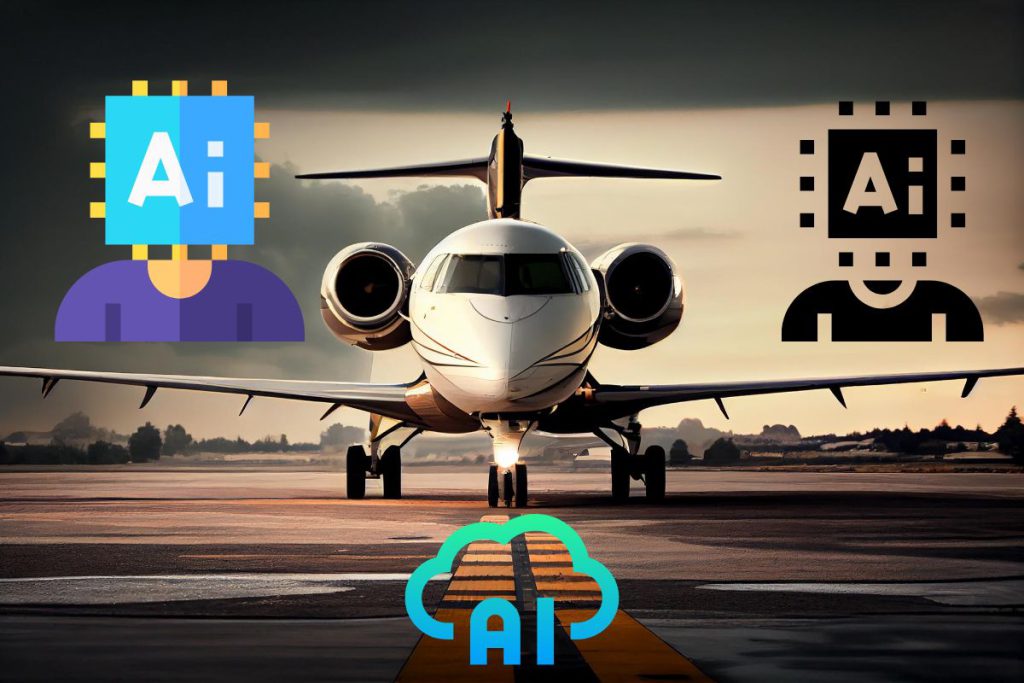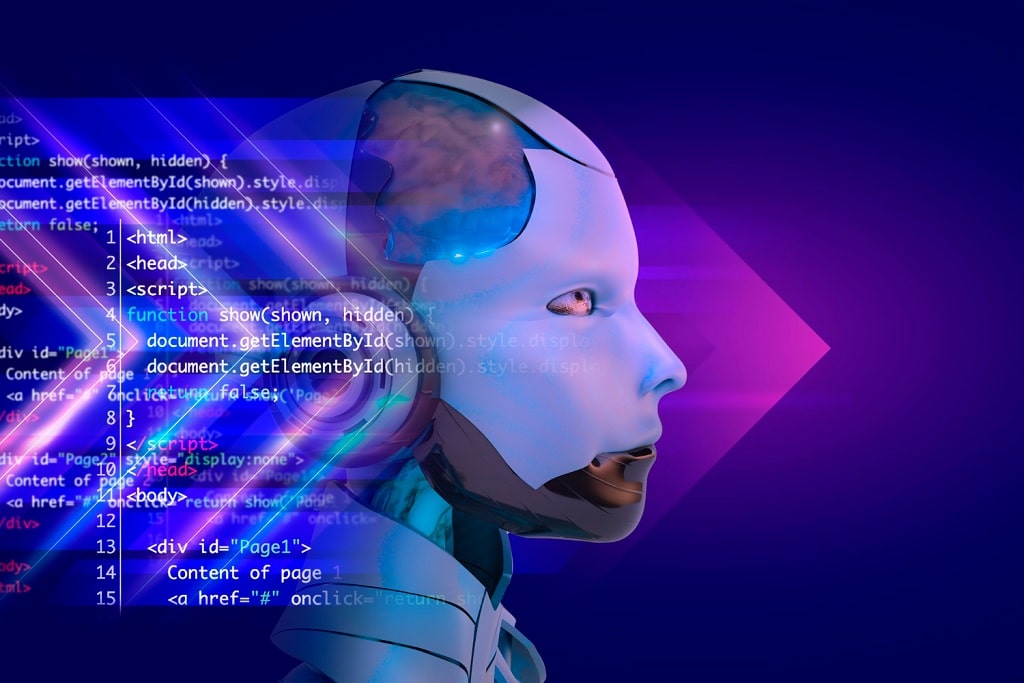The safety and comfort of pilots and passengers are of prime importance in the aerospace industry.
In these dynamically evolving modern times, there has been an increase in the demand for AI implementation in the aerospace industry.
Artificial intelligence is the most advanced modern technology that can transform aerospace operations by automating tasks with the help of efficient machine learning techniques and AI-enabled data analysis, enabling aerospace officials to make informed aerospace decisions while ensuring the safety of the aircraft, passengers, and pilot.
In this article, we delve into the myriad benefits that customized AI solutions bring to the aerospace industry.
Understanding AI implementation in aerospace industry
Aircraft need to be tested with an autonomous flight preparation test that is conducted to check the proper functioning of essential parts that are responsible for flight takeoff and landing on the aerodrome.

Automated cruise control can easily be initiated with a single push button that conducts a series of tests, showing the results on the display screen. Once the test is completed successfully, the aircraft is ready for takeoff.
These tests can identify the wear and tear issue on the aircraft engine plates, help in the predictive maintenance service of aircraft, and are capable of fixing potential issues before it is too late.
Moreover, as the industry embraces autonomous systems, AI becomes the linchpin, enabling unmanned aerial vehicles and autonomous aircraft to navigate dynamic environments with precision, opening up new frontiers in aviation.
Every flight that an aircraft makes carries a wealth of information that needs to be secured. These data are stored in the database securely with the help of AI implementation in the aerospace data security system.
We can collect information from various data sources, find passenger details, and identify frequent flyers to provide them with special offers or discounts.
From optimizing fuel consumption and flight paths to managing maintenance schedules, AI-driven insights empower industry professionals to make strategic decisions that not only improve operational efficiency but also contribute to significant cost savings.
As the aerospace sector continues to push the boundaries of innovation, the implementation of AI emerges as a strategic imperative, offering unparalleled capabilities to meet the challenges of a rapidly advancing industry.
Trending: Top 10 Future Trends for AI in Banking Sectors
Optimized Performance and Efficiency:
Customized AI solutions are tailored to meet the specific needs of aerospace systems, resulting in optimized performance and enhanced efficiency.
Whether it’s in-flight navigation, fuel management, or maintenance scheduling, AI algorithms can analyze vast amounts of data to make real-time adjustments.
This optimization not only improves overall system performance but also contributes to cost savings through better fuel efficiency and reduced downtime.
Related: The Role of Advanced AI Solutions in Modern Businesses
Predictive Maintenance for Enhanced Safety:
Safety is paramount in the aerospace industry, and AI plays a crucial role in ensuring it. Customized AI solutions can predict potential equipment failures by analyzing historical data and performance metrics.
This predictive maintenance approach allows for proactive measures, reducing the likelihood of in-flight failures and improving overall safety standards.
By identifying and addressing issues before they escalate, airlines can enhance their operational reliability and passenger safety.
Related: Benefits of Advanced Artificial Intelligence Solutions for Businesses
Tailored Navigation and Autonomy:
Aerospace systems demand highly accurate and reliable navigation. Customized AI solutions enable the development of advanced navigation systems that can adapt to various scenarios, weather conditions, and airspace complexities.
AI-driven autonomy enhances the capabilities of unmanned aerial vehicles (UAVs) and autonomous aircraft, making them more responsive to dynamic environments.
This customization ensures that aerospace systems can navigate with precision and respond effectively to changing circumstances.
Related: Revolutionizing Business Processes with AI Application Development Services
Data Security and Threat Detection:
The aerospace industry deals with sensitive data, and the security of this information is paramount. Aerospace organizations can face particular cyber security challenges with the help of customized AI solutions.
AI algorithms can detect and respond to potential cyber threats in real-time, safeguarding critical systems and protecting confidential information.
This level of customization ensures that security measures align with the specific requirements and vulnerabilities of the aerospace sector.
Related: Things To Consider Before Investing in Data Engineering Consulting Firm
Streamlined Communication and Collaboration:
Customized AI solutions facilitate improved communication and collaboration within the aerospace ecosystem.
Whether it’s air traffic management or coordination between ground control and in-flight systems, AI can streamline processes and enhance data sharing.
This level of customization ensures that communication protocols are optimized for the unique demands of the aerospace sector, leading to more efficient and synchronized operations.
Precision in Flight: Navigational Advancements
AI is revolutionizing navigation in the aerospace industry, introducing unprecedented precision in flight.
Customized AI algorithms analyze real-time data, adapting to changing conditions and optimizing flight paths for fuel efficiency. This not only reduces operational costs but also enhances overall flight safety.
AI-powered navigation systems can adjust routes dynamically, avoiding weather hazards and congested airspace, ensuring a smoother and more efficient journey.
Enhanced Safety through Predictive Maintenance:
For aerospace safety, AI-powered predictive maintenance has changed the game. By analyzing historical performance data and identifying patterns, AI algorithms can predict potential equipment failures before they occur.
This proactive approach allows for timely maintenance interventions, reducing the risk of in-flight malfunctions and significantly improving overall safety standards.
Airlines can avoid unscheduled downtime, ensure aircraft reliability, and, most importantly, prioritize passenger safety.
Autonomous Systems: Pioneering the Future of Flight
Artificial intelligence is helping us develop advanced unmanned aerial vehicles and autonomous aircraft with high-performance airspace capabilities.
The vehicle’s autonomous flight system, which doesn’t require any human intervention at all, controls the entire journey from takeoff to landing.
The machine learning algorithm is designed after an analysis of flight risks, which helps in mitigating the risks at the right time, helping aircraft systems make data-driven decisions efficiently.
The development of autonomous systems not only opens new possibilities for cargo and passenger transport but also contributes to the exploration of remote or hazardous environments.
Data-Driven Decision Making: Operational Efficiency:
In an industry that generates vast amounts of data daily, AI facilitates data-driven decision-making, optimizing operational efficiency.
AI algorithms process and analyze data to provide valuable insights for airlines, maintenance crews, and air traffic controllers.
Whether it’s optimizing flight schedules, managing fuel consumption, or streamlining ground operations, AI-driven decision-making is at the forefront of enhancing overall efficiency in the aerospace industry.
Cybersecurity Fortification: Protecting Critical Systems
Data hacking is not industry- or domain-specific. It can be hacked for the aerospace industry as well. Hence, the importance of cyber security for the aerospace industry cannot be neglected.
AI can be a key factor in identifying any risks of data hacking with actionable insights to ensure data is secure. The critical system of the air crafts can be saved from any cybercriminals who look for weak links on the aerospace network station.
Through continuous monitoring and real-time threat detection, AI algorithms can identify and neutralize cyber threats, safeguarding sensitive data and ensuring the integrity of communication systems within the aerospace ecosystem.
Related: Cybersecurity Solutions for Executive Protection
Conclusion:
The aerospace sector is at the forefront of technological innovation, and the benefits of customized AI solutions are evident in its continued evolution.
From optimizing performance and ensuring safety to enhancing navigation and fortifying cyber security, customized AI solutions bring a host of advantages tailored to the specific needs of the aerospace industry.
As the demand for efficiency and safety continues to grow, the integration of AI in aerospace systems will undoubtedly play a pivotal role in shaping the future of air travel and space exploration.
More Great Contents:




